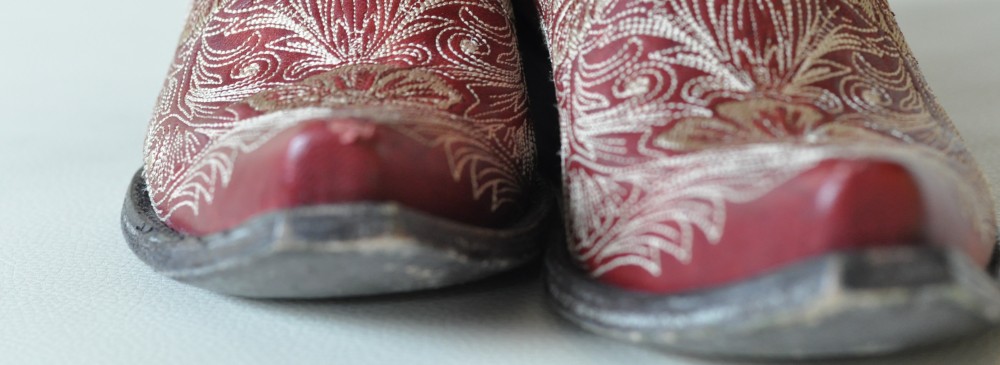Our smiles are as broad as the streets we amble down this sunny morning. They aren’t streets really. They are wide walkways, closed to traffic, and paved in perfectly uneven brick. Cobbled, except easier on the legs.
The spring sun warms our bare arms, and the tall palm trees that line every street in Los Angeles sway almost imperceptibly. It’s only when we stop moving that I feel a faint chill, so quiet under that happy yellow air I almost don’t notice it.
The bright busy stores beckon on the right, and on the left the farmer’s market lures us closer, promising fresh, tasty, fragrant… I am distracted by an exquisite array of tiny succulents, and gaze with pleasure at the rows of miniature gardens, green and orange and pink perfectly contained in glass spheres of every size. Safe and happy.
“I don’t know where he is? Wasn’t he with you?”
The words come to me slowly, muted, muffled even at first. They take a long time to reach me as I stand in the sun, and even longer to register in my brain, and finally my heart.
“Where is he?” Raised voices. Something like panic. I am anxious, and confused. Who are they talking about?
“Nicki. Nicki! Where’s Jed?”
“Jed? What? Why?” He was right… there. No, no… there. I know I saw him, newly seven and so curious, just a minute ago. Before the succulents. Long before. Many, many minutes before. Shit.
The chill is no longer faint. It is absolutely unavoidable. The blood freezes in my veins, and even as I spin around in actual circles convinced I will spot him any second, I wonder what will happen to our family without him in it. Who will we be? How will we be? WHERE IS HE?
Lost. He is lost.
There. Behind the palm tree. Doing ninja moves, or following a bug.
“He’s there he’s there. Jed. Jed!”
“Mom, I’m hungry. Look what I found. Is this a spider? And look, look Mom. I can jump from all the way up here. Look.”
My frozen heart resumes beating. The fine hairs on my arms relax. I hold his little hand in mine and turn my face up to the sun. I see the palm trees sway a little. We walk, all of us close together, down the cobbled street. Safe and happy.
***

Umhlanga Rocks, South Africa. photo: http://www.decharmoy.co.za
The Indian Ocean has always been my favorite. The waves are big and the water is warm, and it’s where I first learned how to swim in an ocean. My dad taught me: if the wave has already broken, hold your breath and go under. But for the ultimate thrill, jump up to meet it, before it breaks, and ride the swell. I stayed in for hours. Often I miscalculated and was dumped in a froth of saltwater and sand. Once I lost my swimsuit. I love swimming in the ocean.
It’s been a long time since I’ve swum in that ocean.
So many summers were spent on the shores of the Indian Ocean. The long eight-hour drive from our landlocked town, usually through the night so that we wouldn’t waste our first day of vacation, was generously rewarded with the first dazzling glimpse of the sea as we drove down the hill, so blue it was hard to tell where the sky ended and the water started. And the lighthouse. White and red and ever-present on the jagged rocks.
My mom made sandwiches with cold cuts and soft white rolls, and my dad developed asthma from running in the humid coastal air. Our striped umbrella was mostly easy to find in the throng, and we knew to find a landmark or two so that we could head in the right direction when the rough waves eventually tired us out. We used the lighthouse to gauge how far we were from where we should be . Often we vacationed with friends from home, and my sister was with me always.
We were young, barely eight-years-old, and while my blissful childhood memories are of hours of unsupervised ocean swimming and play, my rational parent brain knows that can’t be true. Eighties life was safer and simpler, and even more so during the hot South African summer at the beach, but there must have been a vigilance cast toward us that we were happily unaware of as we frolicked in the waves and munched our sandwiches on towels laid carefully on the sand.
My friend taught me to jump over the little waves as they broke at the shoreline. We held hands and shrieked as the water nipped at our ankles and we teased the frothy water as it crept back and forth back and forth. She dropped my hand, and headed back to the striped umbrella. Maybe she yelled over her shoulder that she was tired and was going back.
Maybe not.
Suddenly I was alone with the whole of the wild Indian Ocean before me, and it was no longer fun to jump over the waves. I was scared. I walked toward the striped umbrella but it was gone. Or maybe it was somewhere else. The colorful, busy beach I loved turned cold and unfamiliar. I walked and walked and wondered if anyone knew what I knew: I was lost.
What if I never found them? Who would I be? How would I be?
The waves continued to nip at my ankles and I think I was lost for a very long time. But perhaps it was only a few minutes. Someone found me wandering on the beach, and I was reunited with my parents and my sister.
Safe again. And happy.
Inspired by the prompt “My Childhood Home” by Linda Schreyer.

